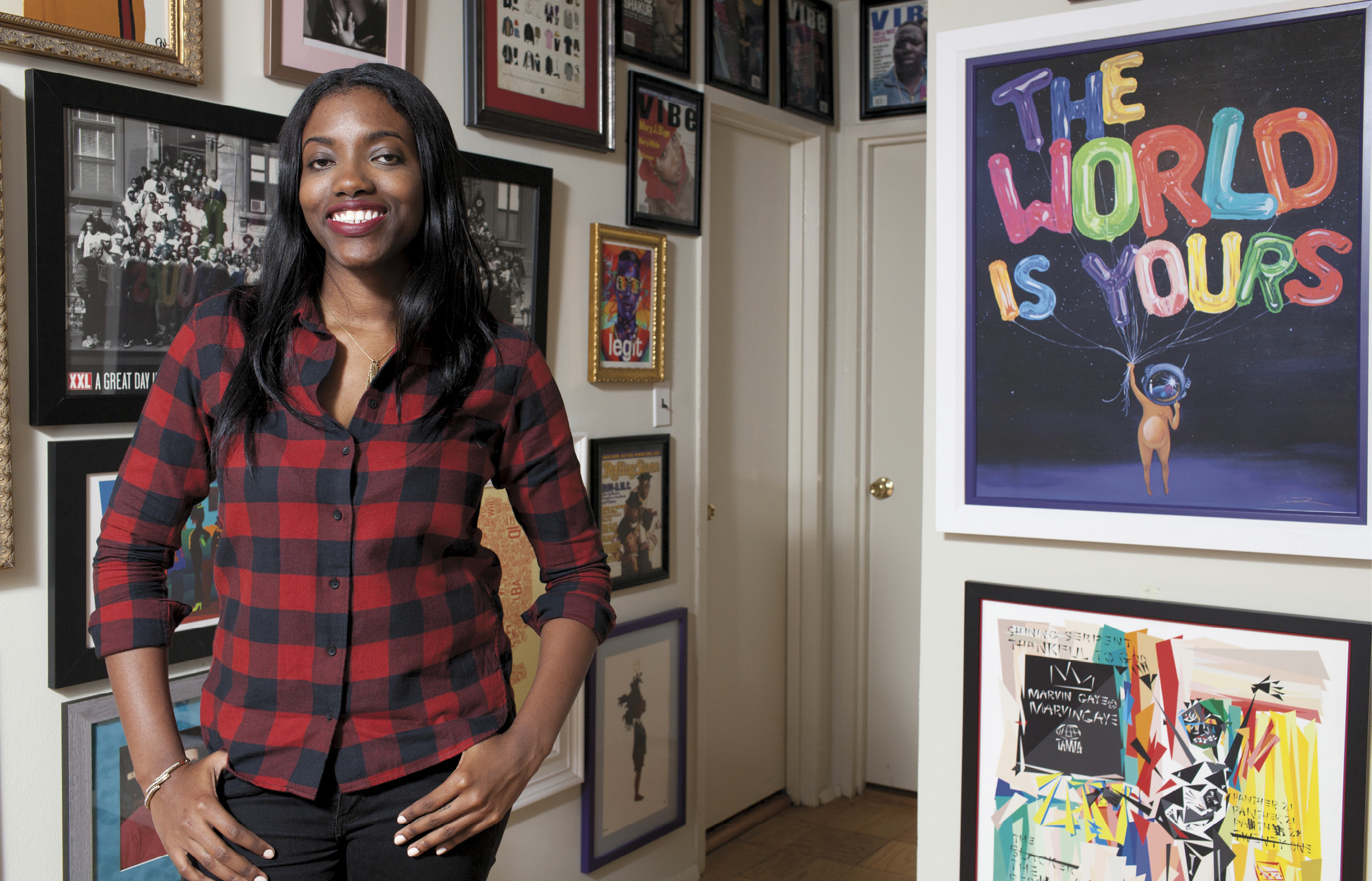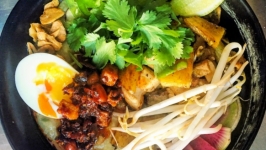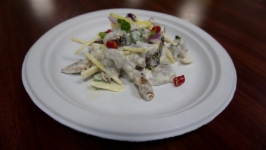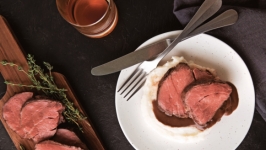Stay Hungry Teaches Culinary Skills Through Hip-Hop Lyrics
"Five years ago, I typed the words ‘hip-hop and food’ into a search engine and all I found were lyrics,” says Syreeta Gates. Knowing that hip-hop artists have always used food as a staple among their verses, Gates saw an opportunity to connect rap with the culinary world in a way no one else had.
“Rappers have always had a relationship with food in their music,” she says. “Rappers from different places across the country talk about food and it goes to show how your location inspires what you choose to eat and rap about, and what the limitations are depending on your neighborhood.”
The similarity between traditional rap battles in hip-hop and cooking competitions on television inspired Gates to combine them on the same stage. So she created a food-and-music-focused project called Stay Hungry, which to her means staying hungry for food and motivated for change.
Growing up in South Jamaica, Gates identified with songs about food access because her neighborhood was—and still is—inundated with fast-food chains. Grocery stores with fresh produce are in limited supply. Since middle school, she remembers rapping with friends after class and then going home to watch Emeril Lagasse on the Food Network. She created her own menus and asked her mother to bring home special seasonings to cook with. By senior year, Gates knew she wanted to be a chef, but when she attended an information session at the French Culinary Institute (now the International Culinary Center) she was shocked to discover the price of a culinary degree.
“It was over $30,000 and I was, like, ‘Wait, what? Who has money for that?’”
She earned her degree at City Tech instead and sought out alternative ways to contribute to her community using food.
In 2015, the first annual Stay Hungry event was held on Biggie Smalls’ birthday at a high school in Jamaica. It teamed up high school students with chefs of color, including female chef Airis Johnson and queer chef Kristopher Edelen, to create dishes inspired by food-themed rap lyrics. The event has seen two subsequent competitions, whose judges include A Tribe Called Quest’s Jarobi White and The Museum of Food and Drink’s Peter Kim. Stay Hungry has evolved from an annual competition to a business that elevates chefs of color and provides a pathway for students and adults through culinary job training, mentorships and scholarships.
“The goal is for students of color to have a point of reference in the culinary industry,” says Gates, who sees using hip-hop to get teens into the kitchen as an imperative because “young people aren’t making food.” Having students simply cut carrots or mince basil changes the game for them because it gives them intimacy with food and agency to feed themselves.
#STAYHUNGRY2017 from YoStayHungry on Vimeo.
Stay Hungry increases familiarity with whole foods through grocery shopping and guided cooking, a much different relationship than that found at the fast-food joint where “you don’t even see your food until it’s in your hand,” says Gates. “To have students buy raw ingredients to cook is a more intimate process than ordering a #2 with fries.”
Since the early ’80s, hip-hop artists have used food like chefs use seasoning to elucidate inequality, aspiration, success, regret and desire in a language we can all understand. Their words resonate in places of discomfort like the crisis of food insecurity, and although they rarely offer a clear solution by song’s end Gates believes that “interacting with something, even if it’s to reveal limitations, at least opens the door for a conversation about it.” There is no tidy fix for food deserts but she believes rappers can use their influence to change culture, not just respond to it.
When artists start talking about leafy greens instead of filet mignon it shifts the aspiration from wealth to health. “Eating healthy is a process. It’s not like you wake up and say ‘I’m going to have a green juice instead of iced tea,’” Gates points out. Gates embraces lyrics like Biggie Smalls’ “T-bone steak, cheese eggs and Welch’s grape,” and she encourages students to reimagine those foods as fresher, healthier creations.
Through Stay Hungry, Gates provides opportunities for high school students for whom the culinary world isn’t a clear career path. Hip-hop and hospitality share in that they have often been hostile places for women of color and particularly for female students, so Gates works to increase representation for women of color in the food industry. Her small production team is dominated by female creatives and in the Stay Hungry kitchen professional female chefs are the majority, not the minority.
For Gates, it’s pivotal that women of all ages feel welcome in the professional kitchen and beyond. “Whether you’re 13 or 85, you need to see someone like you,” she says adamantly. “Seeing what is possible instills confidence to take what you have, where you are at and see what you can do with it.”










